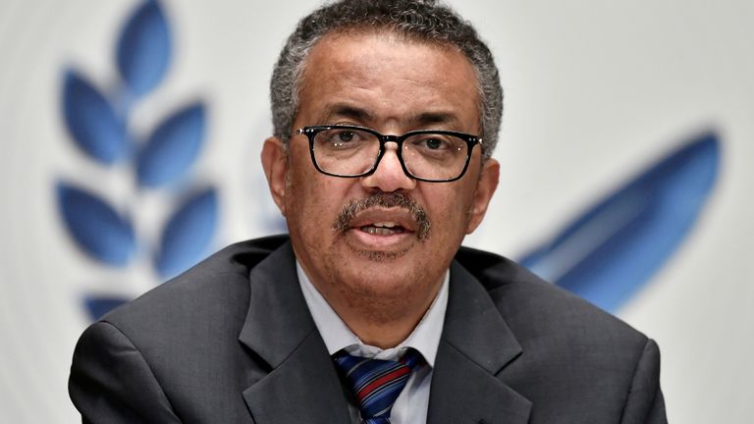The World Health Organisation (WHO) has kicked off the Decade of Action for Road Safety 2021-2030, in Geneva, with an ambitious target of preventing at least 50% of road traffic deaths and injuries by 2030.
WHO and the UN regional commissions, in cooperation with other partners in the UN Road Safety Collaboration, have developed a Global Plan for the Decade of Action which was released on October 28.
Globally, over 3,500 people die every day on the roads, which amounts to nearly 1.3 million preventable deaths and an estimated 50 million injuries each year – making it the leading killer of children and young people worldwide, WHO reports.
As things stand, road carnages are set to cause a further estimated 13 million deaths and 500 million injuries during the next decade, particularly in low- and middle-income countries. These are unacceptable numbers, both in absolute and relative terms.
Road traffic crashes have remained a major cause of death globally, even though every one of those deaths and injuries is preventable.
According to WHO Director-General, Dr Tedros Adhanom Ghebreyesus, the loss of lives and livelihoods, the disabilities caused, the grief and pain, and the financial costs caused by road traffic crashes add up to an intolerable toll on families, communities, societies and health systems.
“So much of this suffering is preventable, by making roads and vehicles safer, and by promoting safe walking, cycling and greater use of public transport. The Global Plan for the Decade of Action for Road Safety lays out the practical, evidence-based steps all countries and communities can take to save lives,” he added.
Recognizing the importance of the problem and the need to act, governments from around the world declared unanimously – through UN General Assembly Resolution 74/299 – the Decade of Action for Road Safety 2021-2030 with the explicit target to reduce road traffic deaths and injuries by at least 50% during that period.
Founder of Bloomberg LP and Bloomberg Philanthropies and WHO Global Ambassador for Noncommunicable Diseases and Injuries has bemoaned the lack of attention needed to safeguard lives on the roads.
“One of the best ways to save and improve lives is to make our streets safer - but that work often doesn’t get the attention it deserves,” said Michael R. Bloomberg.
He noted that Bloomberg Philanthropies has been working to improve road safety since 2007 by strengthening laws, increasing enforcement, redesigning streets, and using data.
"I’m glad to say that the WHO’s ambitious global plan for road safety includes many of the strategies that we’ve used to save lives, and it will help encourage governments around the world to make road safety the high priority it should be,” he further said.
Joining the call for safer roads is Director of the Department of the Social Determinants of Health, Dr Etienne Krug who insists that "it is time to put in action what we know works and shift to a much safer and healthier mode of transport. This new plan will lead countries onto a more sustainable path.”
She revealed that more than 50 million people have died on the world’s roads since the invention of the automobile.
"This is more than the number of deaths in World War One or some of the worst epidemics,” Dr Krug stressed.
This Global Plan describes the actions needed to achieve that target. This includes accelerated action to make walking, cycling and using public transport safe, as they are also healthier and greener modes of transport; to ensure safe roads, vehicles and behaviours; and to guarantee timely and effective emergency care.
It is aimed at inspiring countries, including governments and partners to act boldly and decisively, using the tools and knowledge gained from the last Decade of Action to change course.
The Global Plan outlines recommended actions drawn from proven and effective interventions, as well as best practices for preventing road trauma. It should be used as a blueprint to inform and inspire national and local plans that are tailored to local contexts, available resources and capacity.
The Global Plan is aimed not only at senior policy-makers, but also other stakeholders who can influence road safety, such as civil society, academia, the private sector and community and youth leaders.
Latest Stories
-
Kwame Boafo Akuffo: Court ruling on re-collation flawed
16 minutes -
Samuel Yaw Adusei: The strategist behind NDC’s electoral security in Ashanti region
19 minutes -
I’m confident posterity will judge my performance well – Akufo-Addo
30 minutes -
Syria’s minorities seek security as country charts new future
1 hour -
Prof. Nana Aba Appiah Amfo re-appointed as Vice-Chancellor of the University of Ghana
1 hour -
German police probe market attack security and warnings
1 hour -
Grief and anger in Magdeburg after Christmas market attack
1 hour -
Baltasar Coin becomes first Ghanaian meme coin to hit DEX Screener at $100K market cap
2 hours -
EC blames re-collation of disputed results on widespread lawlessness by party supporters
2 hours -
Top 20 Ghanaian songs released in 2024
3 hours -
Beating Messi’s Inter Miami to MLS Cup feels amazing – Joseph Paintsil
3 hours -
NDC administration will reverse all ‘last-minute’ gov’t employee promotions – Asiedu Nketiah
3 hours -
Kudus sights ‘authority and kingship’ for elephant stool celebration
3 hours -
We’ll embrace cutting-edge technologies to address emerging healthcare needs – Prof. Antwi-Kusi
4 hours -
Nana Aba Anamoah, Cwesi Oteng special guests for Philip Nai and Friends’ charity event
4 hours

